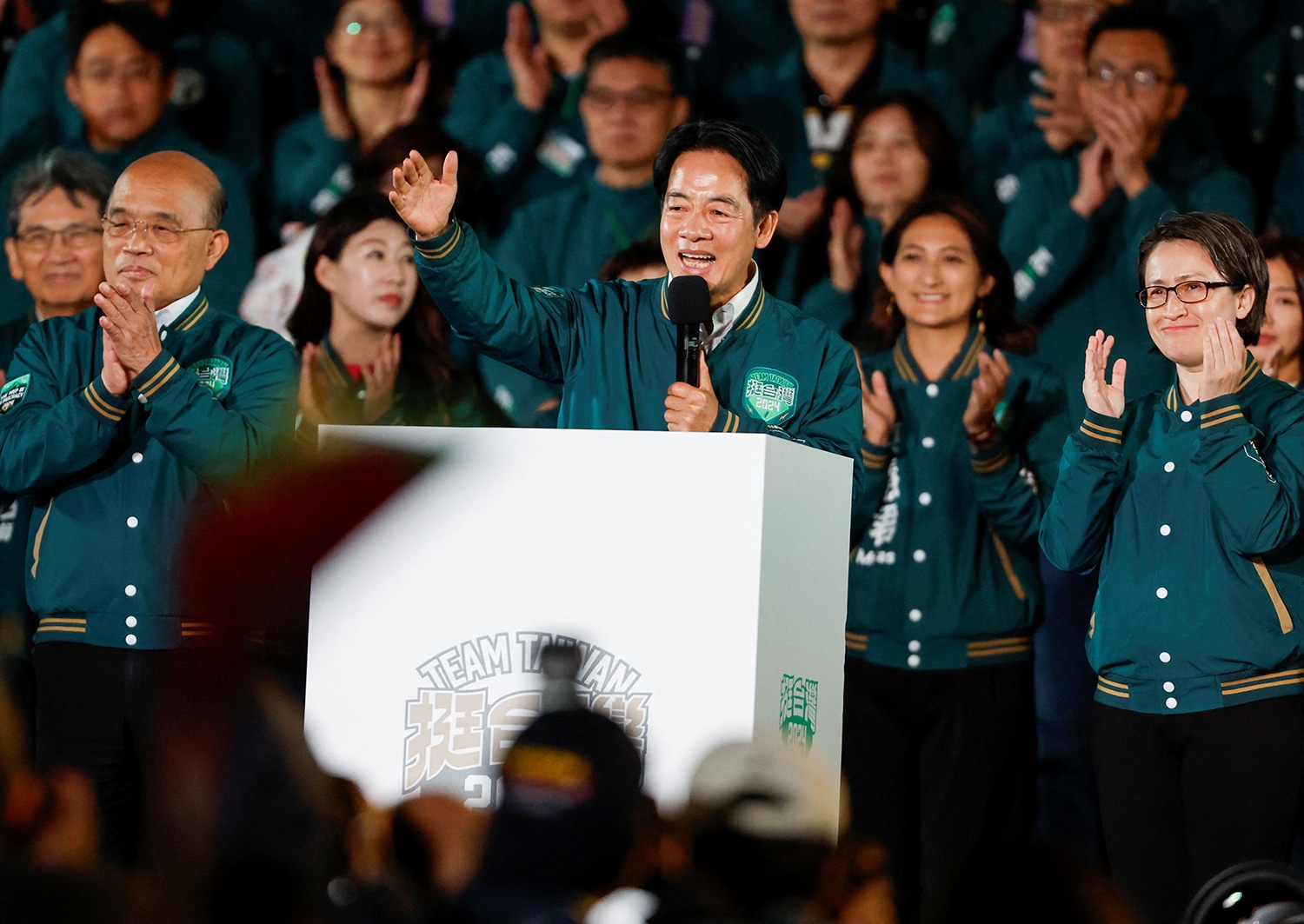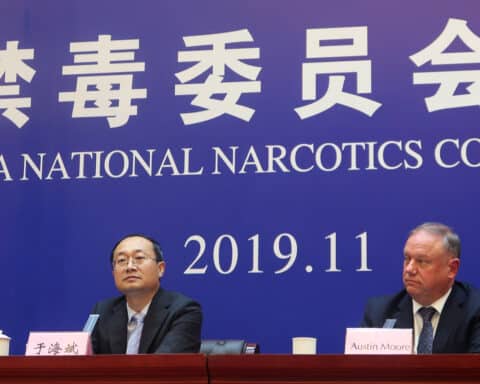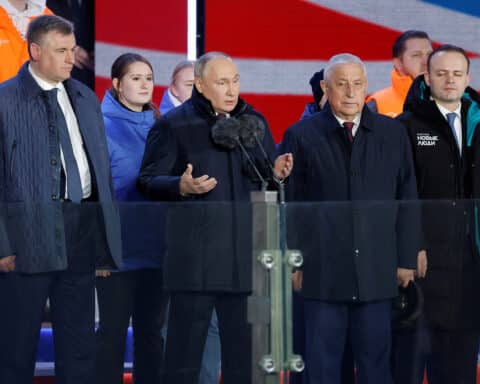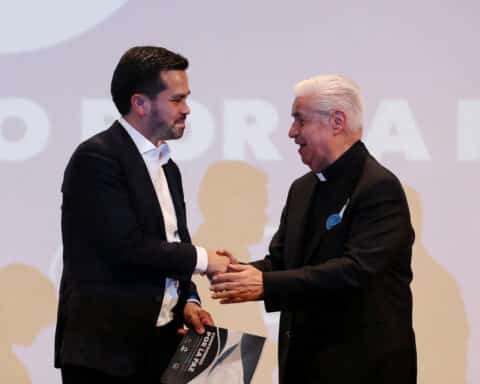WASHINGTON (OSV News) — Taiwanese Vice President Lai Ching-te, known as William Lai, who opposes Chinese control of Taiwan, won the island democracy’s Jan. 13 presidential election, widely watched for its international implications.
Taiwan’s Catholic bishops did not comment on the election, but Maryknoll Father Joyalito “Joy” Tajonera, who has worked in Taiwan for more than two decades, said he hoped “politicians are realistic and practical.”
“The status quo is the way to go now,” he told OSV News Jan. 14.
“Taiwanese are not looking for trouble,” he said. “Nor are they looking for a fight.”
The status quo to which Father Tajonera referred is that Taiwan, or the Republic of China, and the mainland — the People’s Republic of China, coexist. The Chinese government relocated to Taiwan in 1949, during a war with the Chinese Communist Party. The two countries are separated by the Taiwan Strait — at its narrowest point, 100 miles wide.
A desire for peace and economic growth
Lai, a candidate for the ruling Democratic Progressive Party, won with just over 40% of the vote. His party rejects mainland China’s claim that Taiwan is part of one China; Beijing has cut off all official ties with the ruling party for the eight years it has been in power.
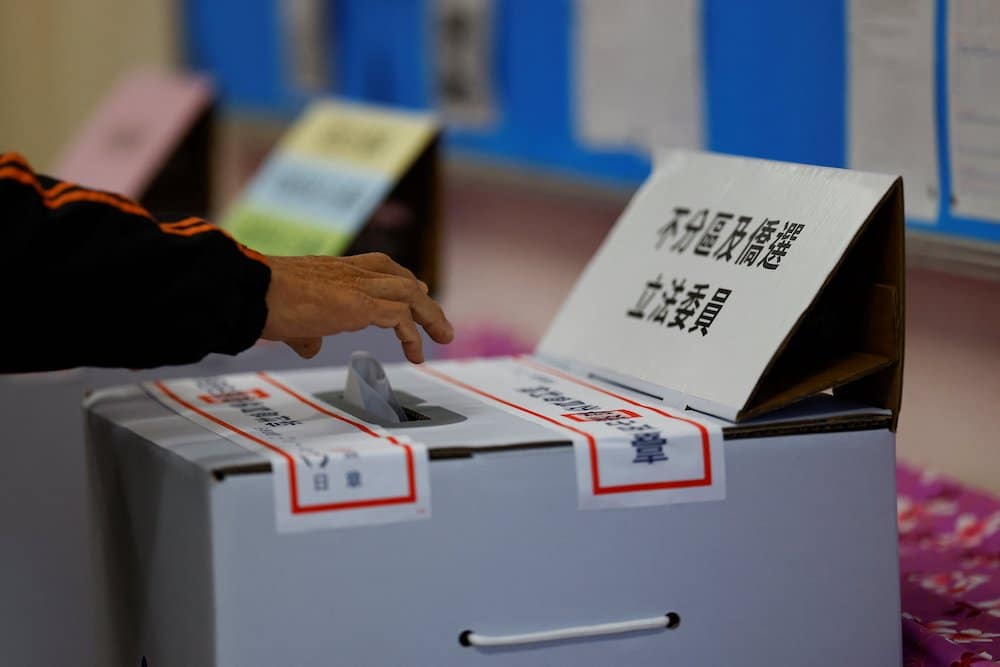
Taiwan’s Kuomintang, or National Party, and the new Taiwan People’s Party split the opposition vote, although the DPP lost its majority in the national legislature. Candidates of all three parties pledged to maintain peace with China.
Father Tajonera said even many northern districts that usually support the National Party voted for Lai, showing that Taiwanese were concerned with “the ‘threats’ from China on their democracy, freedom, (the) economy.”
The Taiwanese people want “a peaceful life, better economy, very good public service, excellent health care” as well as “freedom and democracy,” he told OSV News.
Chinese pressure in advance of election
As the election neared, mainland China increased its pressure in trying to influence voters to reject the ruling party. It increased military incursions off the coast of Taiwan, promoted false social media posts and invited local Taiwanese officials on tours of the mainland.
The United States does not have diplomatic relations with Taiwan, but under the Taiwan Relations Act, it supports the nation’s self-defense. Taiwan is the United States’ eighth-largest trading partner, and the United States is Taiwan’s second-largest trading partner.
U.S. President Joe Biden met with Chinese President Xi Jinping in November and reiterated that the United States opposes any unilateral changes to the status quo from either side. A statement from the White House said Biden told Xi the U.S. expected “cross-strait differences to be resolved by peaceful means, and that the world has an interest in peace and stability in the Taiwan Strait.”
After the election results were announced, international media reported a series of exchanges between China and several Western nations. U.S. Secretary of State Antony Blinken and some European countries sent congratulatory messages to Lai. China responded with statements from several Western embassies warning democratic governments, including the United States, not to send the “wrong signals” about Taiwan.
Potential military action
Lai, 64, is a former doctor. After years of practice, he was elected to the National Assembly and, in 2010, became mayor of Tainan, where he became “a very good friend” of the late Maryknoll Father Brendan O’Connell, who served in Taiwan for more than 50 years, said Father Tajonera.
“In Taiwan … all the presidents recognized the contribution of the Catholic Church in serving the people,” Father Tajonera added.
Taiwan is now an island nation of 23 million people, slightly smaller in area than Delaware and Maryland combined. China’s mainland is almost as big as the United States, but China has over a billion more people than the U.S.
Each government considers itself the legitimate government of “one China.”
On a business and personal level, the two countries have much interaction. In 2022, the value of trade between China and Taiwan was $205.11 billion. The Taiwan government says that between 1991 and the end of December 2022, approved investment in China included more than 45,000 cases totaling $203.33 billion.
Xi has promised to reunify Taiwan with China. Several international media and think tanks have reported on the potential for Chinese military action against Taiwan, with no wide consensus.
Reuters reported that China’s defense ministry accused Taiwan of hyping up the military threat before the election, a charge Taiwan denies. One official from a Western country told Reuters any strong Chinese reaction might come after Lai’s inauguration on May 20.
The Associated Press reported that Bloomberg Economics calculated any military action between China and Taiwan could potentially cost the world economy $10 trillion.

